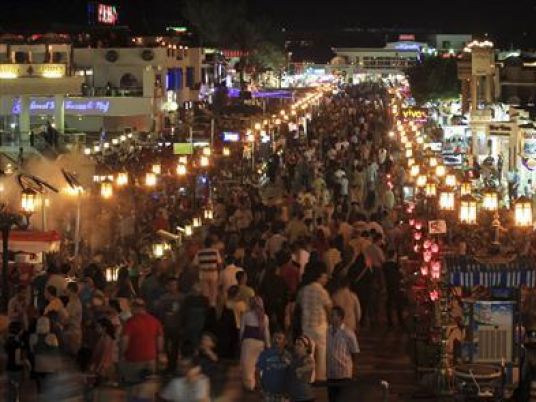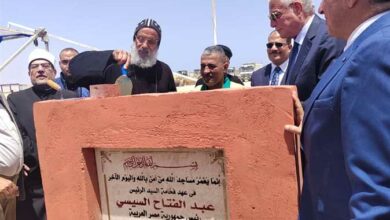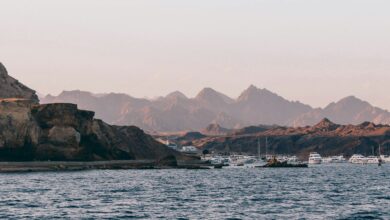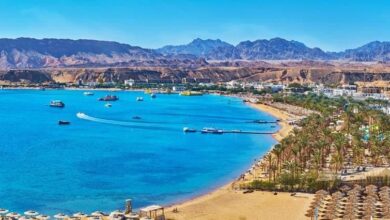
The Red Sea resort of Sharm el-Sheikh, where British tourists were stranded Thursday after flight cancellations over fears a bomb downed a Russian plane, is the jewel of Egypt's tourism industry.
Britain and Ireland suspended air links on Wednesday over concerns a Russian flight home from Sharm el-Sheikh that crashed Saturday may have been brought down by a bomb.
Set on the Sinai Peninsula's southern tip, Sharm el-Sheikh is a holiday resort of white villas and hotels stretching 15 kilometres (10 miles) along the coast between ochre mountains and a bright blue sea.
Sharm el-Sheikh along with the rest of the peninsula was returned to Egypt in 1982, three years after the country signed a peace deal with Israel.
What was once a remote beach on the edge of the Red Sea grew exponentially, with dozens of luxury hotels and night life attracting tourists from Germany, Italy, Britain, eastern Europe and the Arab world.
Its vibrant coral reefs and nearby wreck of a World War II navy ship have become famous among scuba divers worldwide.
The town attracted on average three to four million tourists a year before the 2011 popular uprising that ousted longtime president Hosni Mubarak.
Mubarak himself had a holiday home in the seaside town and during his decades-long rule hosted international summits in Sharm.
Several other calamities, however, have dealt blows to tourism in Sharm el-Sheikh even before the Russian plane crash that killed all 224 people on board.
Bombings in the town in July 2005 killed nearly 70 people, at the height of a wave of militant attacks between 2004 and 2066 on Sinai tourism resorts.
In late 2010, a mysterious spate of shark attacks killed one tourist and injured four others, forcing the closure of Sharm el-Sheikh's beaches for several weeks.
Hotel occupancy also dropped after the 2011 uprising, although the Sinai suffered less than other tourism sites from the country's turbulence over the past four years.
After the army ousted Islamist president Mohamed Morsi in 2013, a jihadist insurgency spiked in North Sinai, targeting policemen and soldiers.
In February 2014, a suicide bomber killed three South Korean tourists in the south Sinai resort town of Taba, 200 kilometres (120 miles) from Sharm el-Sheikh.




